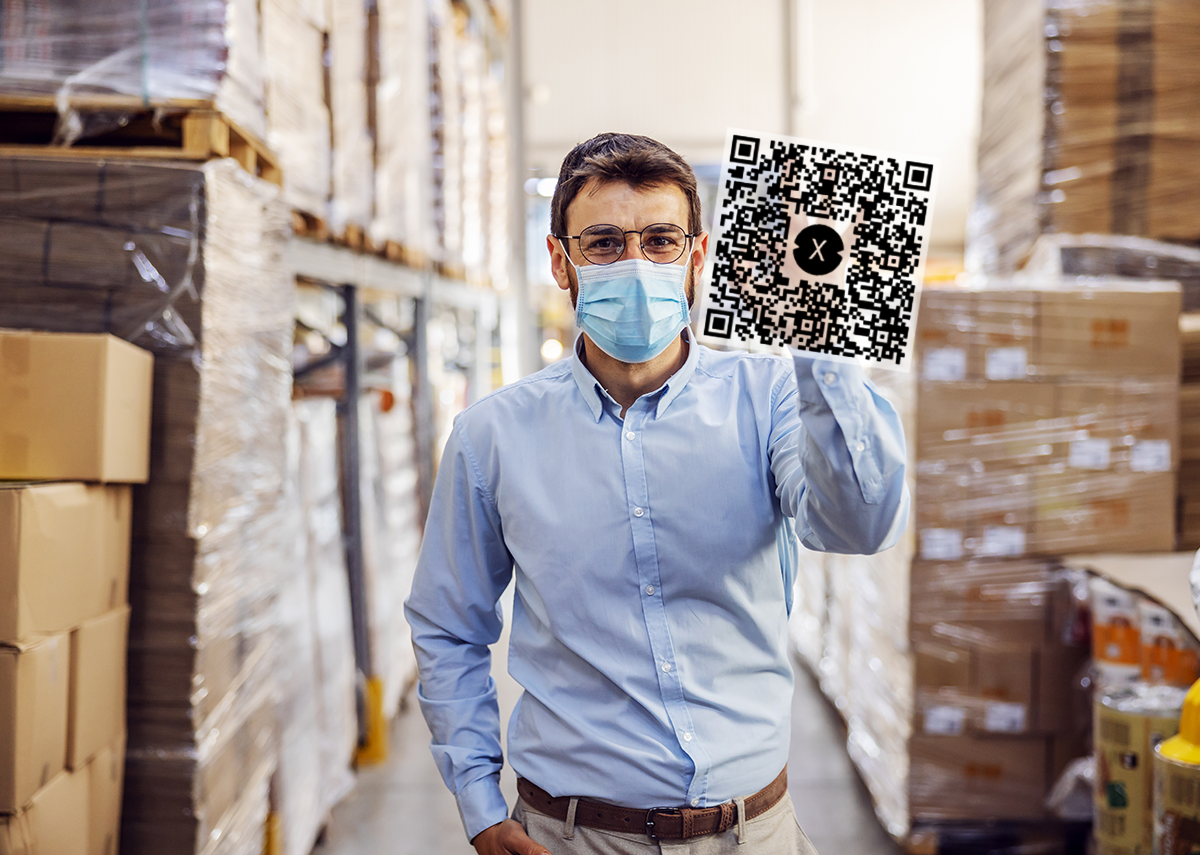
7 points and a chance: The corona pandemic is forcing us to rethink – Dusan Petkovic|Shutterstock.com
One thing is now very clear, something that has worked reasonably well so far: While previously little or no effort was made to conduct one's own data and information research, but instead repeatedly copied from the competition, this is no longer possible due to the extraordinary and new situation.
The existing templates no longer work. There is no original version available from which one could learn from successfully implemented strategies and scenarios in any way.
Copying from others isn't inherently a bad approach. It can help compensate for shortcomings or correct flawed developments. The most famous and well-known example of this is Facebook's acquisition of Snapchat. Those who don't cooperate get copied. Previously, the photo app Snapchat had rejected a takeover bid from Facebook.
Suitable for:
The Corona pandemic and its effects on key industries: What you need to do now
8 possible measures at a glance. For mechanical engineering, logistics and manufacturing.
Competition is increasingly a question of managing time effectively. It's not the big fish that eat the little fish, but the fast fish that overtake the slow fish.
But now everything is different – and at the same time, it's also an opportunity.
Waiting and seeing what others do isn't a good idea either. Right now, all the existing frameworks and rules are collapsing. Nothing is as it was before. It's also unclear whether things will ever be the same again. And if they are, it will take a considerable amount of time. Until then, waiting could have disastrous consequences.
I am certain that we will overcome this crisis and wake up one morning seeing the world through different eyes. A new era will dawn because nothing will ever be the same again. We are already experiencing an incredible number of changes.
Cashless payments are now possible in Germany thanks to NFC/RFID technology. The coronavirus crisis has changed payment behavior.
In 2019, the situation was different. According to a study, one in five people would not shop at the supermarket if card payments were the only option. Nearly half of all respondents generally prefer paying with cash rather than by card. Just under a third of respondents "rather prefer" or "significantly prefer" paying by card. The remaining respondents declined to specify their preference for either payment method.
In August 2019, 1,036 restaurant patrons in Germany were surveyed: On what occasions do you prefer to pay cashless in restaurants, cafes or bars?
On what occasions do you prefer to pay without cash in restaurants, cafes, or bars? – Image: Xpert.Digital
Published by orderbird; MasterCard: Leveraging the opportunities of digitalization
48.4 percent of surveyed customers stated that they pay by card in restaurants, cafes, or bars whenever they don't have cash on them. Even larger bills are often paid cashless. Only 18.6 percent of customers pay exclusively cashless in the hospitality sector. 8.6 percent of participants indicated that they have never paid by card in a bar, cafe, or restaurant.
During a specialist discussion, Ralf-Christoph Arnoldt, payment expert at the Federal Association of German Cooperative Banks (BVR), announced that cashless transactions in Germany increased by 48 percent in May 2020 compared to the previous year .
This is just one example. These changes affect all sectors and industries. All previous and common scenarios are now being re-evaluated.
Greenhouse gas neutral Germany by 2050
Simultaneously with the economic changes caused by the Corona pandemic, there are also environmental policy plans that will completely overhaul our mobility and supply bases in the next 20 to 30 years.
Suitable for:
On November 28, 2018, the EU Commission presented its long-term strategic “vision for a prosperous, modern, competitive and climate-neutral economy for the time horizon 2050”.
The strategy outlines how Europe can move forward on the path to climate neutrality by investing in realistic technological solutions, empowering citizens, and coordinating measures in key areas such as industrial policy, finance, and research, while ensuring that the transition is socially just.
Strategy is one thing, implementation is another.
Here are my 7 points that can help with strategy and implementation:
1. Time.
At first glance, this seems paradoxical. We don't have time. Groundbreaking decisions need to be made now. And yet, now is the right time to revisit all strategies and concepts. Budget plans have already been drawn up, but in most cases, they haven't been approved yet. Most plans, however, are still based on experiences and figures from the time before the coronavirus pandemic. Nobody knows what the future holds. Will trade fairs be able to take place as planned next year? What will the attendance be like? What is the plan B?
2. Reflection (thinking and reconsidering):
In any case, things cannot continue as they have been. Several scenarios must be considered at this time. A modular approach is essential.
3. The Hour for New Things and Innovation
Even though we Germans are often said to be inflexible and to calculate everything eight times before making a decision, we are quick to improvise when our carefully laid plans fall apart. Then we do it right the first time. What others consider trial and error becomes our standard practice. The Corona pandemic could work to our advantage, because helplessness isn't really part of our vocabulary.
4. Networking:
Another advantage of our mental DNA is that we ask others questions and exchange ideas. We don't just stick to superficialities. When we communicate, there has to be a result. We delve deep, want to know everything, and connect that with our experiences. Our directness, which sometimes gets us into trouble in diplomatic situations, is now an advantage. No beating around the bush or small talk; it has to be direct and clear. We need to get to the point when making decisions. Despite everything, courtesy remains a virtue!
5. Planning Periods
Annual planning is common practice in companies. However, this requires predictability and planning certainty. This is absolutely not the case at the moment. Therefore, I recommend a temporary switch to semi-annual, or even quarterly, planning.
At the same time, the expansion of digitalization should be pursued unabated and with great force. For this is undoubtedly the (global) market and communication structure of the future.
6. Obtain temporary support.
There are various reasons why existing structures cannot adapt quickly to new circumstances, especially when it happens so suddenly, as with the Corona pandemic.
Therefore, for individual projects, appropriate concepts should be developed and implemented outside the existing structure, which can then be integrated into the company structure at the appropriate time. The existing structures can continue to focus on their core competencies.
Suitable for:
7. And, while we're on the subject…
I see another, much more interesting opportunity in this coronavirus pandemic: We Germans love security and predictability. For decades, we've holed up in this scenario and made ourselves comfortable. Now that has changed. We now have to take action and face the situation. We can do it. If we now realize that with our thorough, proactive approach, we can achieve considerably more in the face of global competition, even if we might not be as flexible as others, then our actions are sound, and we are creating a new approach that could become a new strategy for success in globalization: thoroughness and flexibility for innovation and development.
Thoroughness includes a secure data basis and trust in partners who are also flexible enough to adapt to new circumstances in the supply chain.
Suitable for:
► Contact me or discuss with me on LinkedIn
What will be crucial for the future will be how we secure the infrastructure of our key industries!
Three areas are of particular importance here:
- Digital Intelligence (Digital Transformation, Internet Access, Industry 4.0 and Internet of Things)
- Autonomous power supply (CO2 neutrality, planning security, safety for the environment)
- Intralogistics/logistics (full automation, mobility of goods and people)
Xpert.Digital delivers you here from the Smart AUDA series
- Autonomization of energy supply
- urbanization
- Digital transformation
- Automation of processes
always new information that is updated regularly.

